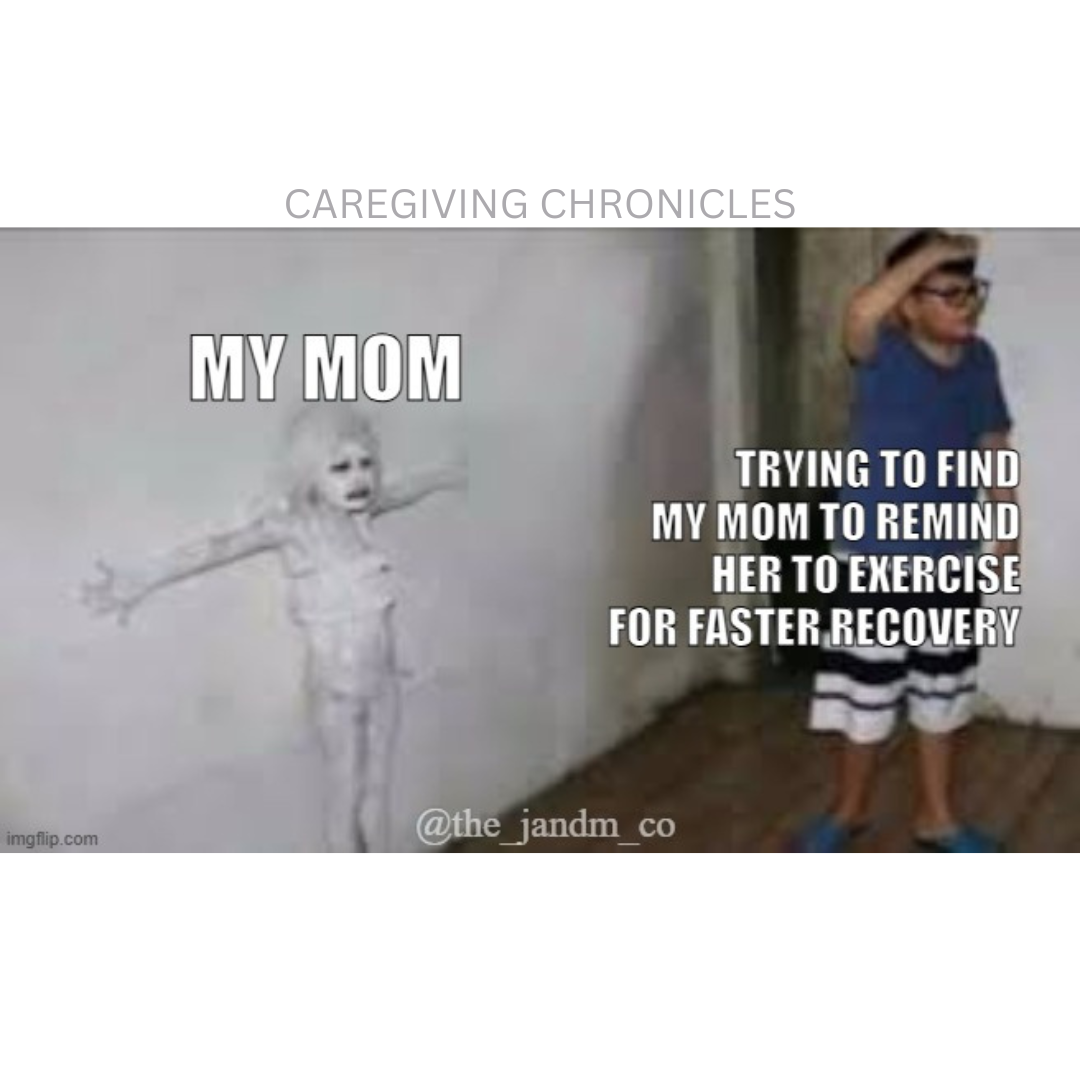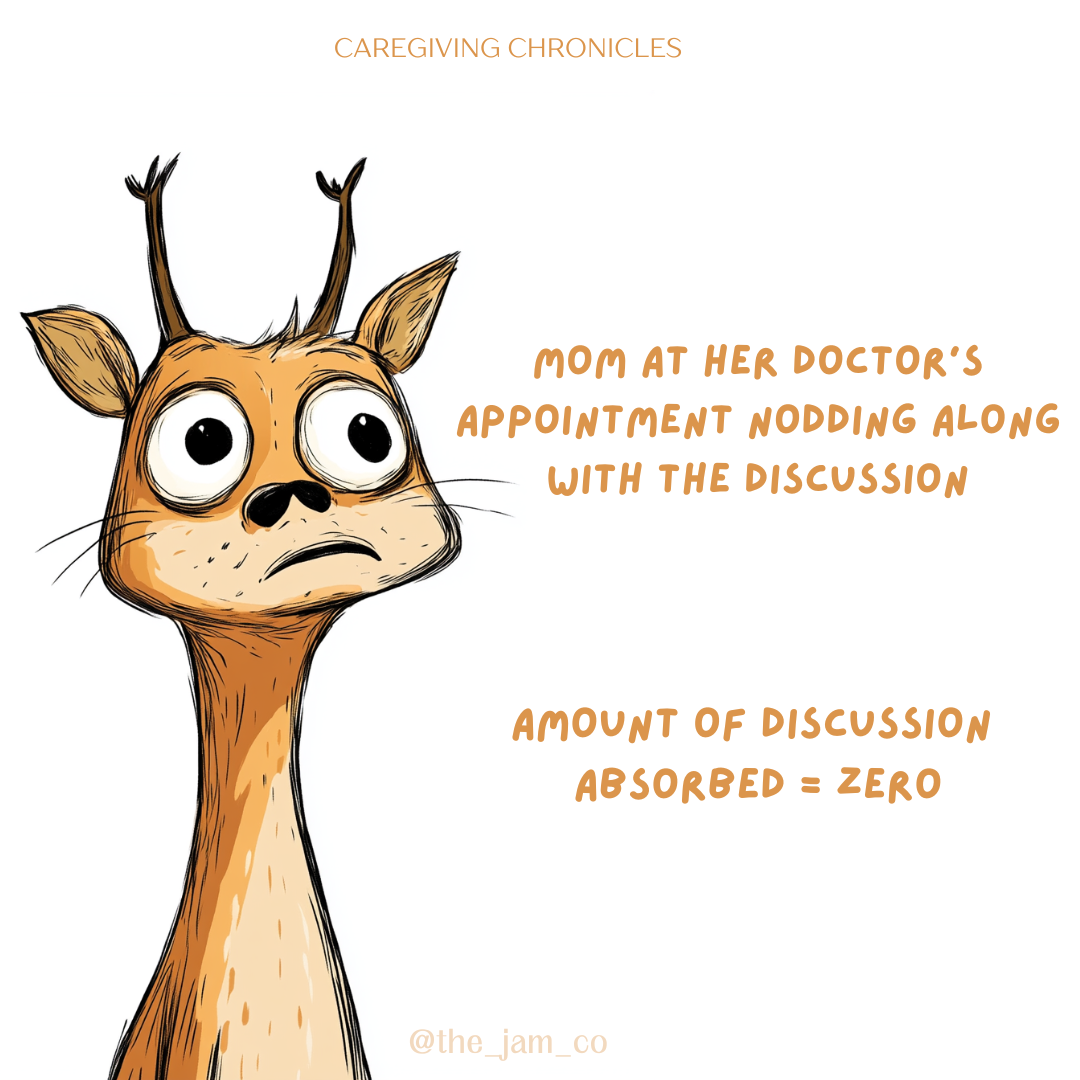At first, caregiving was light duty: shuttling Mom to appointments, taking notes, making sure prescriptions were refilled, and casually suggesting she stay active. It was recommended she stay active so that we could monitor her heart valve before it failed. But let’s be real—getting her to exercise turned into an uphill battle. Anyone else have a stubborn loved one who thinks housework or gardening totally counts as working out?
My mom is the queen of productive activities—she’d rather plant seeds and water her garden, than hop on a stationary bike for 15 minutes. I get it: cycling to nowhere can feel dull. But, I knew her heart needed some form of regular exercise to stay strong after everything she’d been through. She finally got to a point where she would walk for 15 minutes a day with us, and then eventually on the stationary bike for 10 minutes a day for a couple months.
It’s still a work in progress. Some days, I nudge her to come out to Costco with me (for a walk) or try simple stretching routines. Some days, she will go upstairs a few times to do laundry (taking the stairs is huge for her!) and we celebrate the fact she’s not lounging in bed all day. Small wins, right?
From finding creative ways to keep my mom moving to juggling everyone’s schedules, caregiving was starting to test my resilience.
Question for the community:
How do you encourage your loved ones to stay active, especially when they resist structured exercise?


